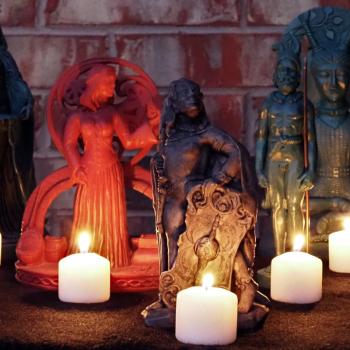It would be difficult to think of another occasion that would compare with this: One of the world's most beloved pop singers, at the height of his career, drops out and becomes a Muslim, not to be seen for more than three decades, meanwhile engaging himself in philanthropy and education. Among Muslims he had become a unique icon, the biggest star they had, but one who no longer was doing what he was famous and loved for. Over this time, countless people were known to beg him to return to music, to share his talent. For most of these years he politely demurred.
At one point during the concert, Yusuf sat down at a table as music was being played and described various "breaks" in his life, beginning with contracting tuberculosis at the age of 19, and then the break he experienced as he nearly drowned in the ocean, and then the break he had when he discovered the Qur'an, and then the three decades break from performing music. He read a quote from the Sufi Hazrat Inayat Khan on "The Alchemy of Happiness," the gist of which is that we may search as far as the Himalayas for peace and happiness, but ultimately we will find it only within the soul, which is itself that peace and happiness, and only when and if the soul is ready. "In the end, while on earth, we're here to share," he concluded-and in these few words he summarized the long years of work and transformation that led to this simple appearance.
His repertoire included many of his classic hits and several songs from the new CD, Roadsinger, which is already near the top of the charts in England. The songs that most ignited the audience, however, were the old ones, songs that had become in some way part of everyone's biography. "O baby, it's a wild world. Hard to get by with just a smile."
What is Yusuf's gift that compels so many to embrace him as they do? Many of his songs feel like an intimate conversation, the kind of tender encounter one might imagine between a parent and child, between elder and youth, or a wise counsel from an old lover.
Listen to samples from "Roadsinger"
After about an hour, the concert ended, all too soon for most of the people there, who clapped and cheered until Yusuf and the band were compelled to return to the stage. At one point someone shouted out, "Yusuf, you're the greatest,' to which he replied, "No. He's the greatest." Pointing his finger upward. The high point was definitely his encore which included "Father and Son" and "Peace Train," and a final "Salam" to the audience which rose to its feet, here in the heart of Mammon, clapping for a humble servant of God.
The poignancy of this moment probably had to do with the reunion of singer and audience and the mutual love between them. It was as if the fans were recognizing he had not left them, and Yusuf was compelled to recognize that he was as much loved as ever, regardless of his years of absence. And he had changed hardly at all-trim, youthful even with graying beard, an undeniable sparkle. Here was not a fundamentalist Muslim with a grim or austere message, but a gentle, humorous, warm human being. As the evening ended, I reflected on the "roadsinger's" first song of the evening, with its refrain, "Traveler, you're welcome here."




